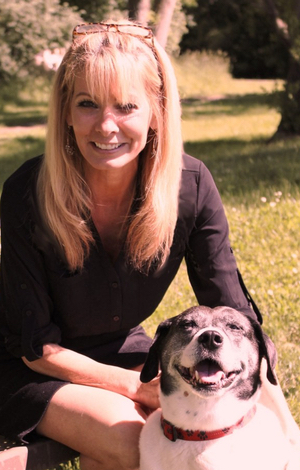Are Ann Arbor’s deer enough of a threat to warrant firepower?
Recently, city government voted to reduce Ann Arbor’s deer population by putting sharpshooters in community parks. Though we’re not at biological carrying capacity and certainly don’t have an overpopulation, and council members admit this is not driven by neither public health nor safety, they have decided to kill the deer in order to save the plants they are eating.
This is not just about tulips, but an alarming new trend -- what I call the “Green Scare” -- put forward mostly by those who, under an “ecological” guise seek to eradicate any plant or animal not currently in popular favor. It is not out of respect for nature, but rather a futile, endless, damaging attempt to control nature.
Deer are native to the Northern America and are present in every county in Michigan. They are “edge animals” living on the boundaries between fields and farms, parks and neighborhoods. “Urban deer” are a phenomenon across the country -- in many places a result of keeping the population artificially high for the hunting industry. Many are the offspring of deer seeking safer land in places where there is less hunting -- only becoming a nuisance to some because of our own planting habits, habitat destruction and fragmented green spaces that concentrate in a way that causes conflict with humans.
To be clear, this battle has nothing do with recreational hunting or what people eat; it is about how we effectively, safely and humanely manage wildlife in suburban community. Culling can make people feel like we’re doing something, but really we are just chasing our tails.
Communities that cull experience an endless cycle of violence and community strife, not to mention a perpetual budget item.
Opposing view: Why ecologists support Ann Arbor's deer cull
Though Ann Arbor says we’ll use up to $140,000 of taxpayer money for each of the next four years for a cull, we have no data on why a cull is needed -- nor do we have a goal on what the cull is supposed to achieve. How many deer are acceptable? What plants are endangered and where? What are our goals? Other cities study deer management for years -- gathering data on population and impact to determine the scope of the problem and the most effective next steps. Wildlife experts always recommend communities try non-lethal methods first. But Ann Arbor is shooting first, measuring later.
Whether you care about deer or not, does that sound like sound public policy making to you? Or does it sound like another political quick fix to appease a vocal special interest group?
Many people raised concerns about the real need, and that culls are widely proven to be an ineffective, ongoing waste of money (because the population will rebound each year as the birth rate increases and new deer migrate into the city, they have to be done over and over). Some don’t want a guns-first solution before any practical methods have been attempted (a reasonable expectation particularly in a world of violence and strife). Others are alarmed by the city’s decision-making process and lack of community engagement. And a majority are worried about safety. All have been disregarded.
Fast forward to Ann Arbor’s selected vendor, its partner, the group that will execute the cull: the USDA Wildlife Services. Haven’t heard of the USDA Wildlife Services? I hadn’t either. What I discovered was shocking (and this from someone who’s seen much of the darker aspects of humanity).
For several years, the USDA Wildlife Services has been under a vast amount of criticism for cruel and corrupt practices -- criticism not just by those in animal welfare, but by investigative journalists, environmental organizations, and members of Congress on both sides of the aisle.
When you look on the USDA website you won’t see services for culling deer. Deer culls simply provide target practice for their sharpshooters in the slower winter months. Helping to rid the country of natural predators, they now add prey animals to their kill list for extra job security.
The City of Ann Arbor said they did their homework. They said they have no other choice. They said their conscience is clear.
They just announced that they will be shooting in 26 neighborhood parks in Ann Arbor. Parks tucked between homes. Parks where people jog and walk their dogs, where kids play and teens hang out. And that they are closing those parks between January 1 to March 31, between 4 p.m. and 7 a.m. Twenty-six parks will be unusable and unsafe during most of the hours people use them for three months.
Where is the crisis that merits this ongoing taxpayer expense; that warrants tearing apart community trust and cohesion; that justifies making our parks dangerous and unusable; that excuses bringing in a rogue and brutal contractor to do our culling?
Are 168 deer in Ann Arbor really the problem? Or could it be government making really bad decisions.
See what new members are saying about why they donated to Bridge Michigan:
- “In order for this information to be accurate and unbiased it must be underwritten by its readers, not by special interests.” - Larry S.
- “Not many other media sources report on the topics Bridge does.” - Susan B.
- “Your journalism is outstanding and rare these days.” - Mark S.
If you want to ensure the future of nonpartisan, nonprofit Michigan journalism, please become a member today. You, too, will be asked why you donated and maybe we'll feature your quote next time!


 Tanya Hilgendorf is president and CEO of the Humane Society of Huron Valley.
Tanya Hilgendorf is president and CEO of the Humane Society of Huron Valley.